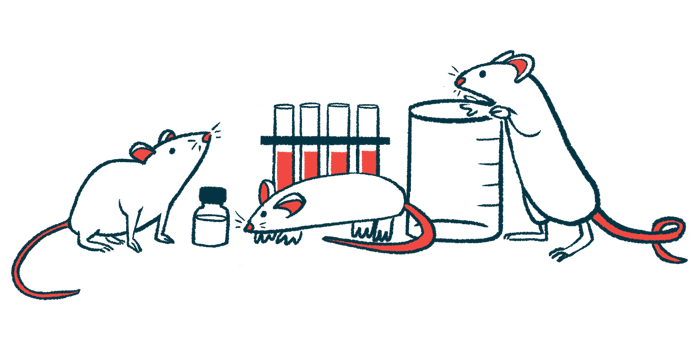KAT7 Enzyme Spotted as Key to Training Immune System’s T-cells

KAT7, an enzyme known to regulate gene activity, is essential for the process of teaching immune T-cells to correctly identify the body’s molecules and cells as ‘self’ — a process that goes awry in multiple sclerosis (MS) and other autoimmune diseases.
This enzyme is also critical for training T-cells to recognize foreign molecules and microbes as threats, which is essential to fight infections and malignant cancer cells.
These are the findings of the study, “The acetyltransferase KAT7 is required for thymic epithelial cell expansion, expression of AIRE target genes, and thymic tolerance,” published in the journal Science Immunology.
“Our research shows KAT7 could be targeted to modify the training of immune T cells so they can either be stopped from causing autoimmunity, or boosted to fight disease,” Daniel Gray, PhD, the study’s senior author and an associate professor at Walter and Eliza Hall Institute of Medical Research (WEHI), in Australia, said in a press release.
“Potential applications of this knowledge include organ-specific autoimmune diseases such as type 1 diabetes and multiple sclerosis, as well as cancer immunotherapy,” he said.
In autoimmune diseases such as MS, the immune system wrongly recognizes the body’s molecules as foreign, mounting an attack against them. This is associated with problems in the development of immune T-cells, which takes place in the thymus, an immune organ located above the heart.
The thymus works as a training hub of T-cells, with tolerance to ‘self’ being achieved by displaying to these cells the thousands of tissue-specific molecules to be encountered once they exit the thymus.
“When all goes to plan, immune T cells are trained not to fight any normal tissues they could encounter in the body, ensuring they do not cause autoimmune disease,” said Melanie Heinlein, PhD, the study’s first author and a former PhD student at WEHI.
T-cells that fail to effectively distinguish ‘self’ from ‘non-self’ are targeted for elimination. But problems in this selection process may result in the escape of self-reactive cells that cause autoimmunity.
It is well established that the autoimmune regulator (AIRE) protein is responsible for activating the genes that code for such tissue-specific molecules in certain thymic cells, enabling them to present these molecules to T-cells during their maturation.
But how this protein knows which genes to ‘turn on’ remained unclear.
Gray and his team — along with colleagues at WEHI and the Monash Institute of Pharmaceutical Sciences, in Australia, and the Weizmann Institute of Science, in Israel — showed that the KAT7 enzyme marks the genes that need to be activated by AIRE.
A histone acetyltransferase, KAT7 works by adding chemical tags called acetyl groups to histones, the proteins that provide a scaffold to wrap and condense DNA into chromosomes. These acetyl groups promote a more relaxed chromosomal structure in that region, allowing better access to genes located there.
The researchers analyzed thymus development, AIRE-mediated gene activity, and immune tolerance in mice genetically modified to lack KAT7 specifically in cells in thymus. They found that KAT7 deficiency impaired the growth of thymus cells and stopped the activity of AIRE-dependent tissue-specific genes.
Use of a newly developed compound that blocks KAT7’s function “was able to stop AIRE from switching on the genes needed to properly train immune T cells,” said Tim Thomas, a study author and associate professor at WEHI.
“Stopping this process sent the immune system into overdrive, leading to immune T cells going rogue and causing a range of autoimmune conditions in pre-clinical models,” Thomas added.
Overall, KAT7 deficiency was associated with the development of organ-specific autoimmunity with features resembling those observed in mice lacking AIRE. Notably, AIRE deficiency in humans results in autoimmune polyglandular syndrome type 1, an autoimmune disease characterized by immune attacks against several organs.
“This shows a clear link between KAT7 and AIRE in maintaining immune tolerance,” Thomas said.
These findings highlight that “KAT7 and the histone ‘marks’ it leaves … are needed to support AIRE’s role in maintaining thymic tolerance and preventing autoimmunity,” the researchers wrote.
“Like a training coordinator, KAT7 directs AIRE to the thousands of genes that must be activated for the ‘boot camp’ to run smoothly … by tagging the genes that AIRE needs to ‘switch on,'” Heinlein said.
Gray believes this discovery may pave the way for potential treatments targeting KAT7, either to restrain T-cells from driving autoimmune conditions, or to supercharge these cells to fight diseases such as cancer.







